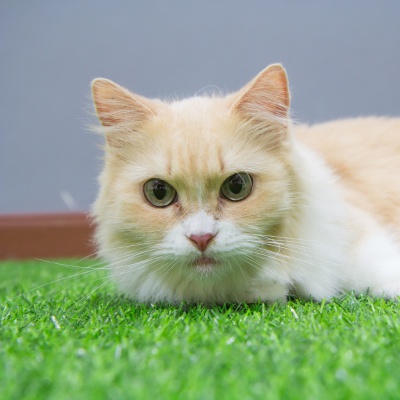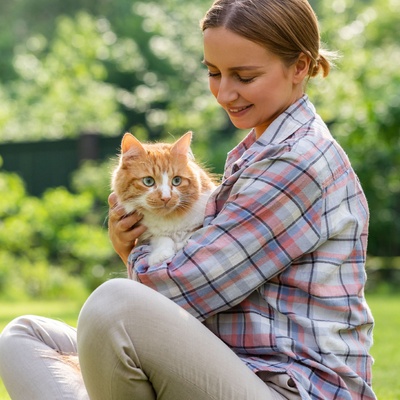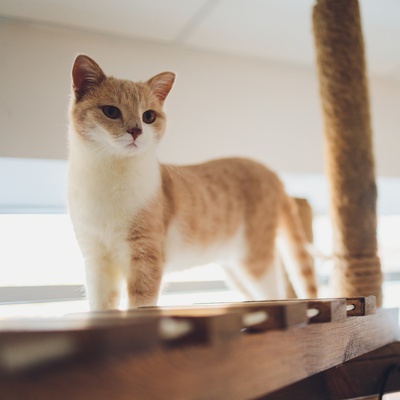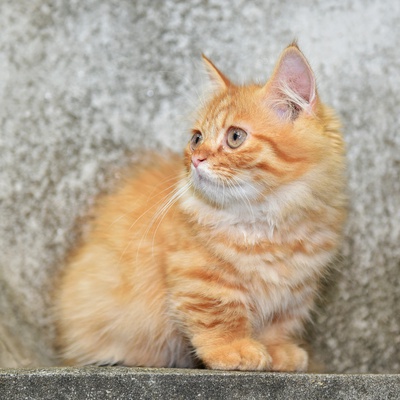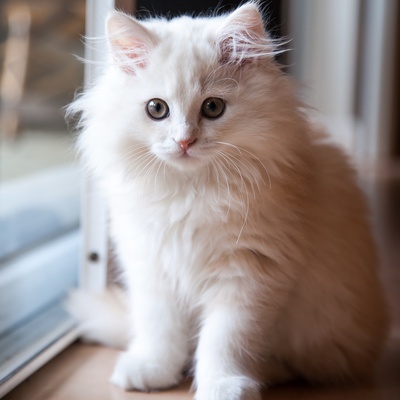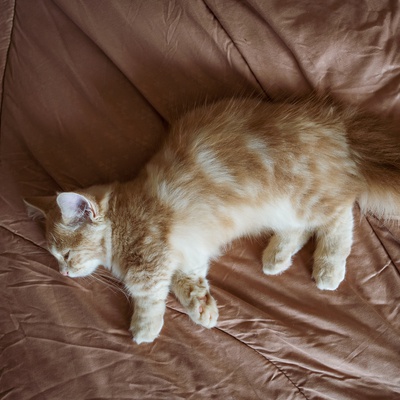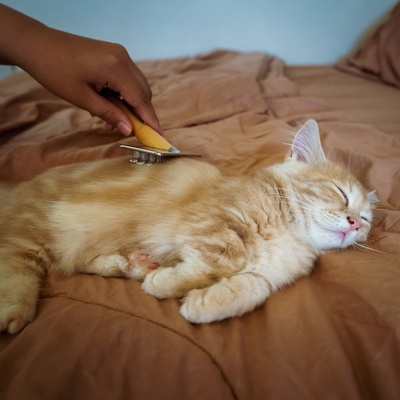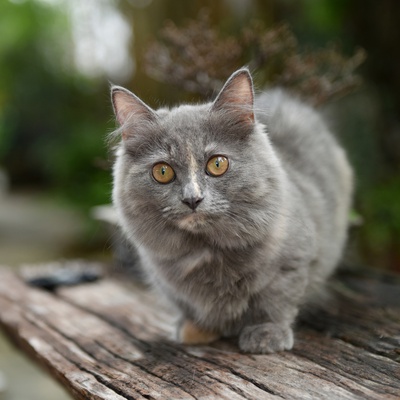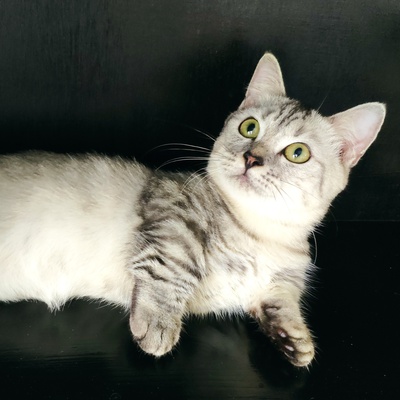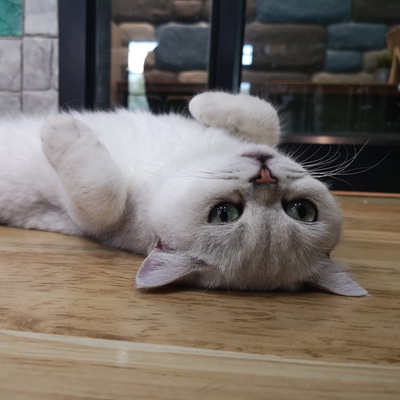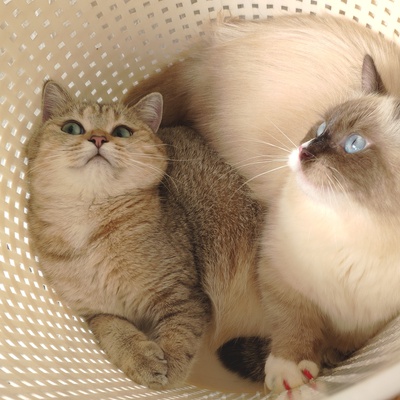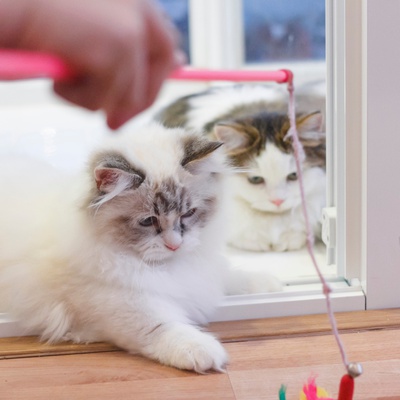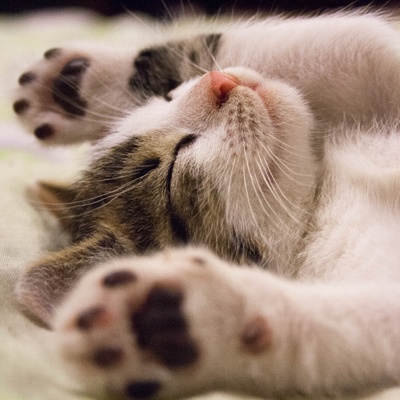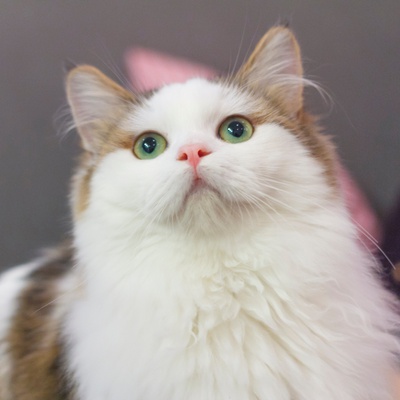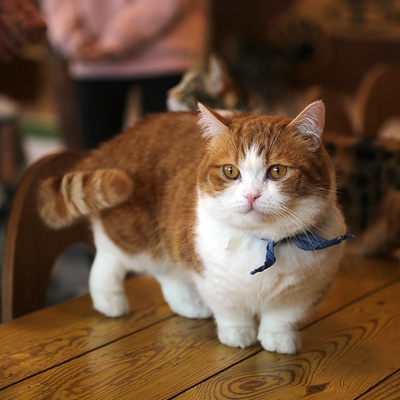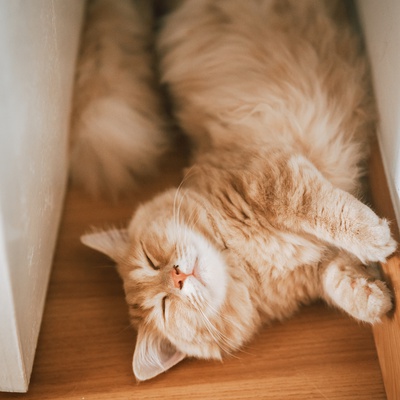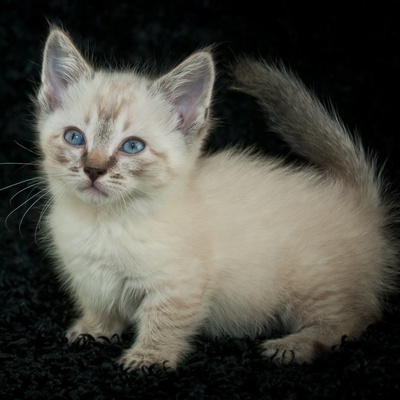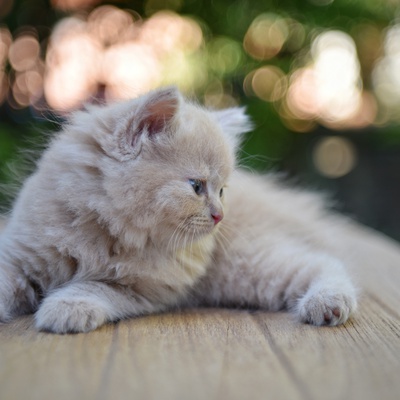Introducing the Munchkin
Find out everything you need to know about the Munchkin: its characteristics, its behaviour, its training and how much one costs.
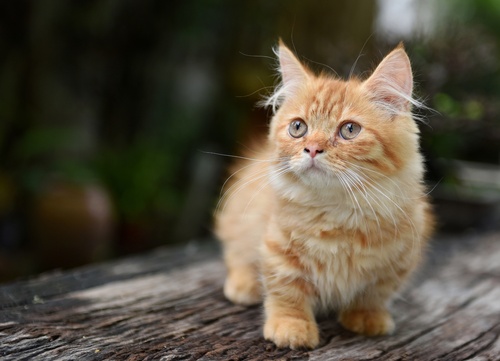
Find out everything you need to know about the Munchkin: its characteristics, its behaviour, its training and how much one costs.
The Munchkin cat is an extraordinary breed that has captivated hearts with its unique charm. Originating from the United States, this breed is known for its distinctive short legs, a result of a natural genetic mutation found in domestic cats.
Despite their small size, Munchkin cats are lively and full of energy. Agile and playful, they never fail to entertain. Beyond their zest for fun, they're also sociable and affectionate, forging deep bonds with their owners. A Munchkin cat is guaranteed to add a sparkle of joy to your daily life.
This selection outlines the unique features of the Munchkin breed of cat.
The Munchkin is a small to medium-sized cat, generally standing about 7-8 inches tall and weighing between 5 and 9 pounds.
The Munchkin comes in both long and short-haired varieties. Its coat is plush, medium in density, and sheds minimally.
While the Munchkin is not completely hypoallergenic, its minimal shedding may make it a more suitable option for individuals with mild allergies.
Munchkins sport a variety of coat colours and patterns, including solid, tortoiseshell, calico, tabby, and more.
The Munchkin is an adaptable breed that can thrive in both apartments and larger homes. Despite their short legs, they appreciate spaces where they can play and explore.
Munchkins are known for their friendly and outgoing personality. They are sociable with both children and other pets, making them a great family companion.
Munchkins generally have good health, but their unique physique can predispose them to certain conditions, such as lordosis and pectus excavatum.
Munchkins have an agreeable and intelligent disposition, making them relatively easy to train. However, patience and positive reinforcement are crucial during training sessions.
We can help you!
Every cat has its own character and specific needs. Making the right choice will ensure his well-being and yours.
Thanks to our quiz, you'll know which breed is right for you, depending on your lifestyle, expectations and many other criteria.
Don't wait any longer and take the quiz to find out the answer!
The Munchkin is a breed of cat known for its short legs, a feature that doesn't hamper its agility but gives it the appearance of a dachshund.
The Munchkin is a small to medium-sized cat, typically around 7-8 inches tall. The weight of a Munchkin can vary, with females generally lighter, weighing between 5 to 7 pounds, while males can weigh up to 9 pounds. The Munchkin reaches its full size and weight around the age of 1 year. Despite its short stature, the Munchkin is sturdy and well-built, with a body that's medium in length and a tail that complements its size.
The Munchkin cat can have either a short or long coat. Short-haired Munchkins have medium-plush, dense, and resilient coat. Long-haired Munchkins boast a semi-long, silky coat with plumes on the tail and tufts of fur on the ears.
If you are prone to allergies, be careful, as the Munchkin is not recognised as a hypoallergenic breed.
Munchkin cats come in a wide array of coat colours and patterns. From solid colours like white, black, and blue, to multicolour and patterned coats like tortoiseshell, calico, tabby, and tuxedo. Their diverse genetic background contributes to this broad spectrum of coat variations.
The Munchkin isn't just defined by its short legs. The rest of its body is moderate in size, with a well-rounded chest and firm musculature, allowing for robust health and surprising agility. The head is a modified wedge shape with full cheeks and a medium-short, rounded muzzle. It has medium to large ears that are broad at the base and pointed at the tips.
The eyes of a Munchkin are large and walnut-shaped, spaced broadly apart, and can come in any color, regardless of coat color. All these characteristics come together to create a distinctive and endearing appearance that is unique to the Munchkin cat breed.
Caring for a Munchkin's coat is relatively straightforward. A weekly brushing is typically sufficient for short-haired Munchkins, while the longer-coated variety benefits from a few brushings per week to prevent matting and hairballs. They also shed more heavily twice a year, in the spring and fall, during which times you may want to brush more frequently. Bathing should only be done as necessary, using a cat-friendly shampoo.
While Munchkin cats are proficient self-groomers, a regular grooming routine not only keeps their coat healthy and reduces hairballs but also provides a bonding experience between the cat and its human companion.
Munchkins are known for their outgoing and playful nature. They're the epitome of 'small but mighty'.
Munchkins, despite their short stature, are incredibly sociable and easygoing cats. They form strong bonds with their human companions and are known to follow them around the house, always wanting to be part of the action. They have an insatiable need for attention and love, and relish in prolonged cuddle sessions.
Their vocalizations are quite subtle, usually consisting of soft trills, purrs, and occasional meows. A Munchkin cat thrives in an environment where their human is present and willing to shower them with the attention they crave.
The general temperament of a Munchkin cat is friendly, patient, and anything but aloof. They get along well with families, children, dogs, and other cats, showcasing their sociable nature.
Despite their love for play and activity, they also appreciate quiet time and are not known for being overly aggressive or temperamental. When they reach their threshold of tolerance, Munchkins prefer to retreat and unwind, rather than lash out. This makes them a great fit for households looking for a gentle and sociable feline companion.
Munchkin cats are remarkably adaptable, thanks to their curious and lively temperament. They can easily adjust to various living environments, be it a small apartment in the city or a sprawling country house. However, the presence of their owner plays a significant role in their happiness and contentment. They do require space for activity, given their playful nature, but their size doesn't demand an overwhelming amount of room.
If you're worried about losing track of him, you can fit him with a GPS collar so you can track his movements and locate him if he escapes.
Don't be fooled by their short stature; Munchkin cats are energetic, intelligent, and playful. They need stimulating activities to keep their minds sharp and expend energy.
Interactive playtime with their owner is beneficial for their wellbeing and can strengthen the bond between cat and human. If they don't get adequate stimulation, they might resort to destructive behaviors out of boredom. Additionally, they appreciate having quiet spaces where they can relax and recharge after their adventures.
Training a Munchkin cat should begin as early as possible to encourage good behaviors and habits. Training must be grounded in principles such as kindness, patience, rewards, and firmness.
Consistency plays a vital role in training, reinforcing good behaviors from the start. Incorporating play into the education process is an effective method with this breed; it aids mental stimulation and helps to deter undesired behaviors.
Choosing a cat that matches your personality and lifestyle will ensure your well-being and his!
Despite their unique appearance, Munchkins are generally robust and resilient in terms of health. This playful breed does not present any specific health issues that come with their shorter legs.
The Munchkin, known for its short stature, impresses with its overall robustness and general health. These cats tend to stay healthy and rarely fall ill. However, like many breeds, Munchkins may be prone to certain genetic diseases such as feline hypertrophic cardiomyopathy and polycystic kidney disease.
DNA tests make it possible to identify prevent their transmission and ensure the longevity of the breed. Regular vet visits are essential to keep vaccines up to date against common diseases such as typhus and rabies.
The Munchkin, characterized by its short legs and medium size, requires high-quality nutrition to maintain its overall health and physique. Feeding your Munchkin a diet based on high-quality, nutritionally complete kibble is essential.
To add variety to your cat's diet, consider incorporating green vegetables rich in water, which can complement kibble and support your Munchkin's renal system.
Despite their small legs, Munchkins are known to be quite active and playful. If not managed carefully, they can have a tendency to gain weight due to overeating. Ensuring your Munchkin gets enough exercise is crucial to prevent weight gain and promote overall health.
Encourage your Munchkin to play, run, and jump by interacting with them and providing them with various forms of stimulation, such as toys. Their active nature makes them good companions for play sessions.
Munchkin cats have gained popularity due to their distinct appearance and outgoing nature. Several breeders worldwide specialize in this unique breed. However, it's important to consider several factors before deciding to adopt.
Munchkin cats, like other pedigree breeds, are often bred by professional breeders or catteries. It's crucial to visit the breeding premises before adopting to ensure the animals are kept in good conditions.
Make sure to confirm that essential health examinations and genetic tests have been conducted on both the kitten and its parents to spot any potential hereditary health issues.
Furthermore, it's worth noting that federal regulations in the United States don't always require electronic identification, such as microchipping. However, microchipping is widely recognized as an effective method for permanent pet identification, enhancing the likelihood of reuniting lost pets with their owners, even in the absence of nationwide mandates.
As a responsible pet owner, it's recommended to educate yourself about local ordinances to safeguard your pet's safety and well-being.
The cost of acquiring a Munchkin can vary based on several factors, such as the lineage, pedigree, breeder's reputation, and the cat's age. Munchkin kittens' prices typically range from
to
. However, this can vary. In addition to the initial cost, maintaining this breed involves ongoing expenses. These include health care, grooming, and diet requirements, which can amount to an estimated annual cost of
to
.
Remember, adopting a Munchkin is a long-term commitment (average life expectancy of 12 to 15 years), so make sure you're prepared for this responsibility before bringing one into your home.
Choosing a cat that matches your personality and lifestyle will ensure your well-being and his!
